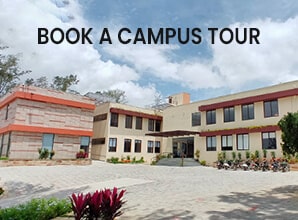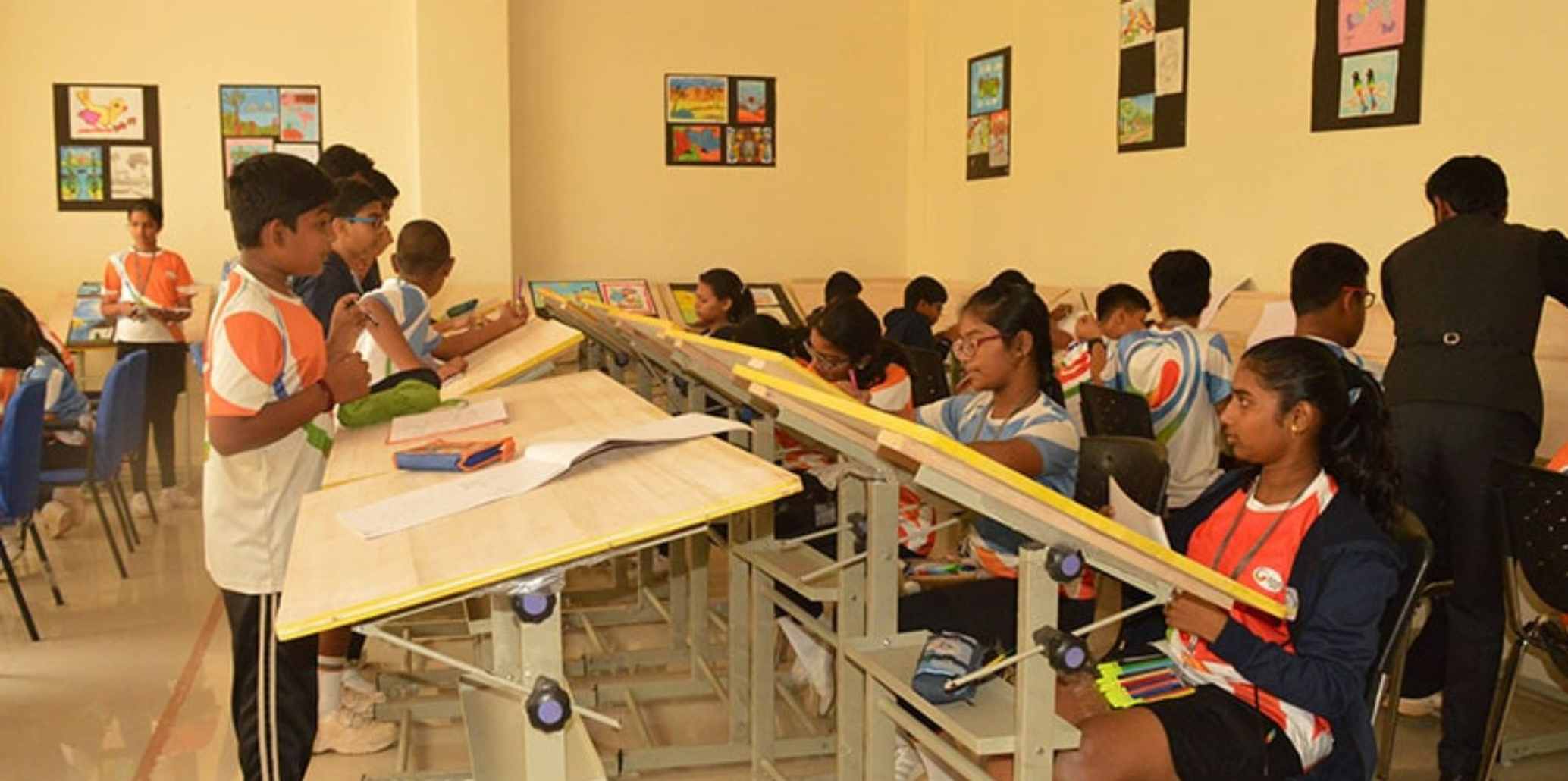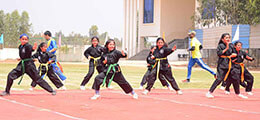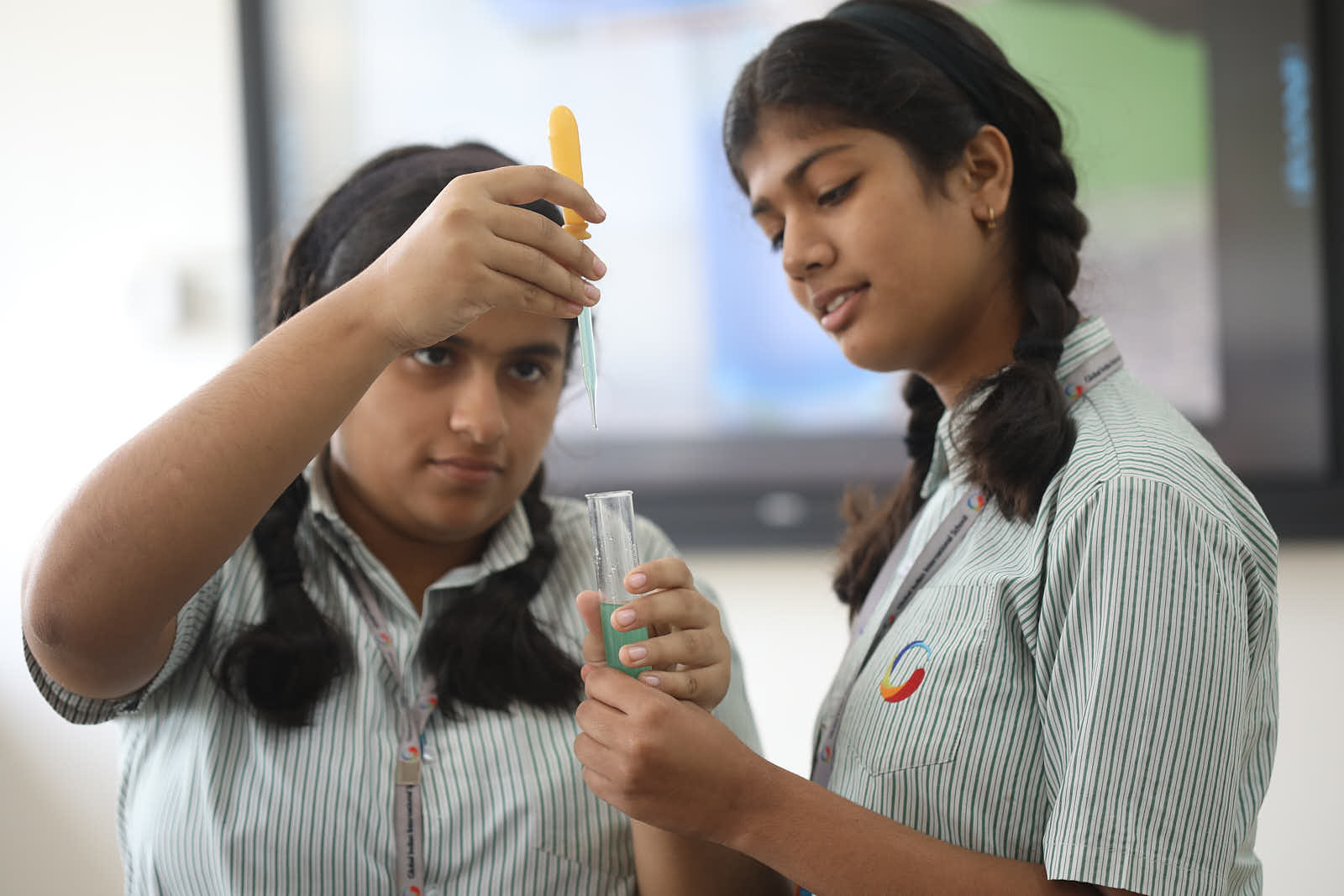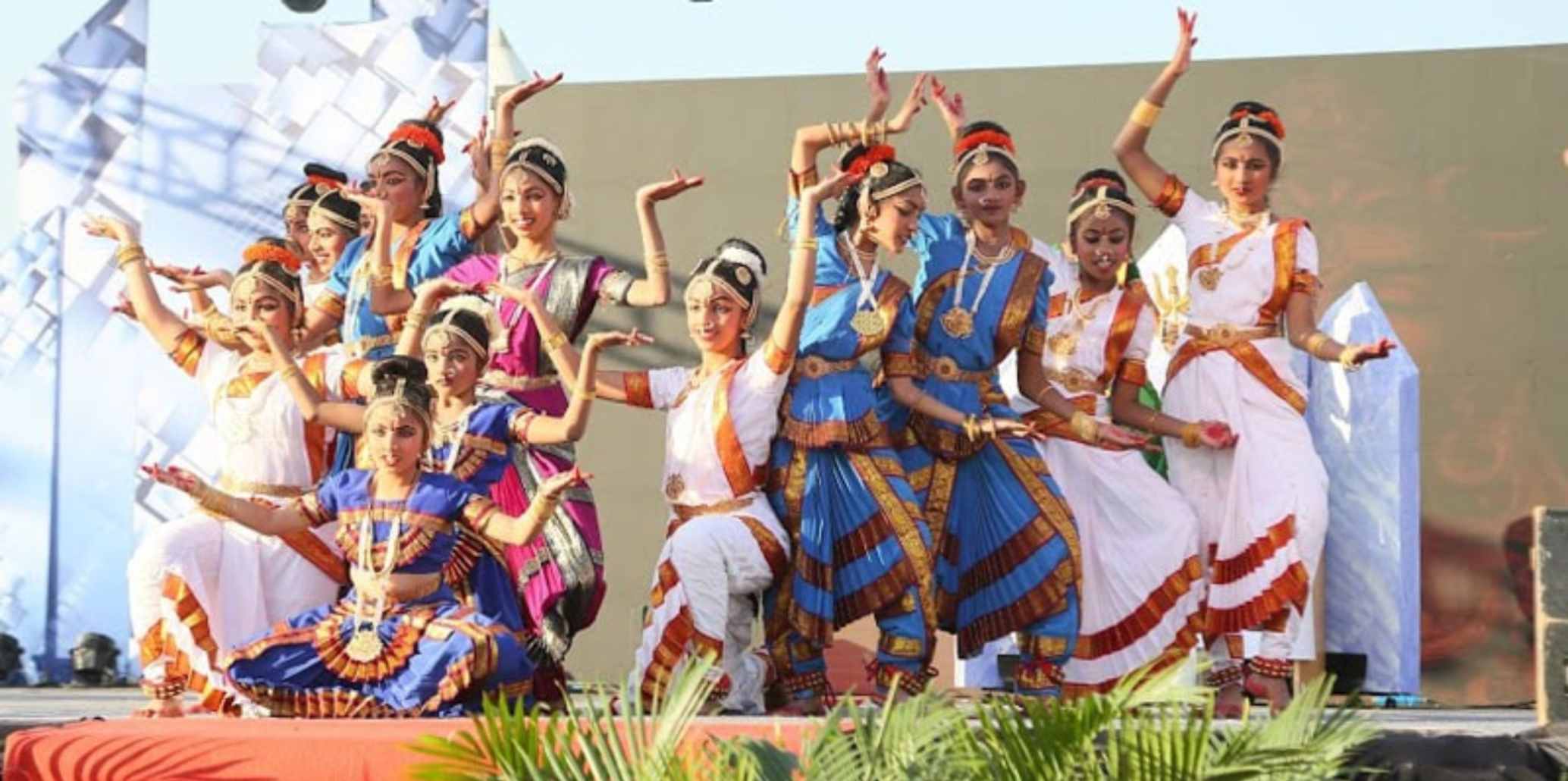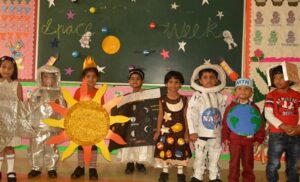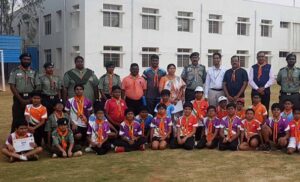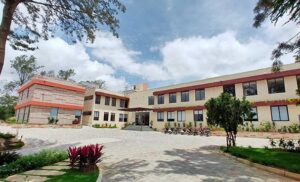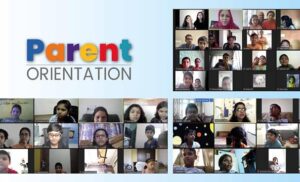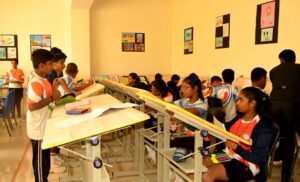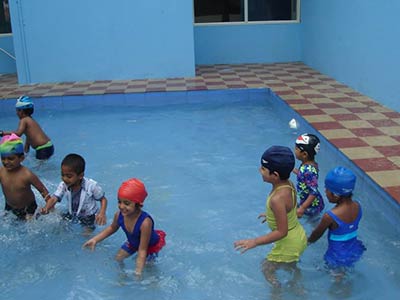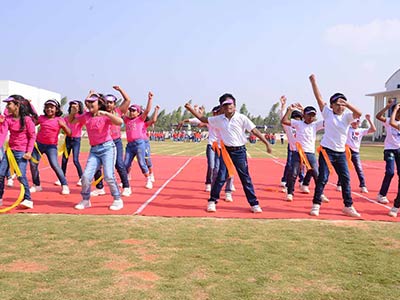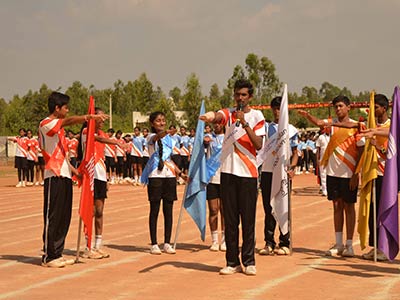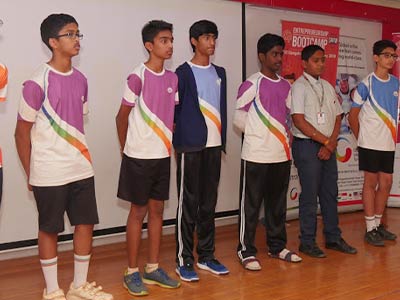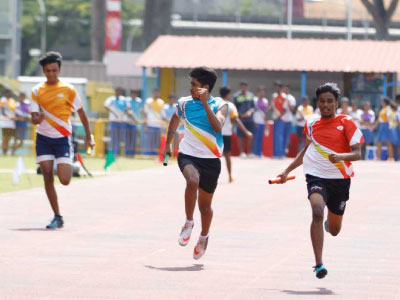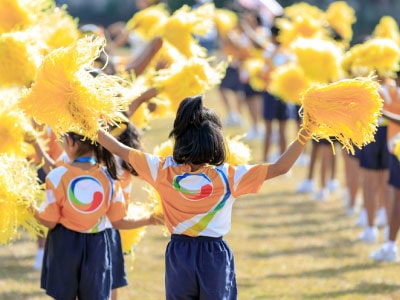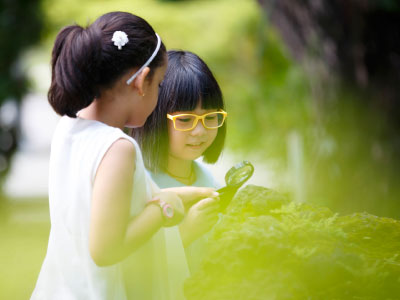Download our FREE Academic Calendar now! 📚 Start your child’s journey to success.
Table of Contents
We relate to the parents who are constantly trying to push their kids towards excellence. The barrier of limited knowledge is sadly getting in the way.
Some schools are considerate enough to take the matter and spread the word through easy mediums. However, many kids and parents still lack in grabbing all the information. Here, you get a vivid and extensive idea of the kindergarten syllabus and more. Read along.
Nursery Vs. Kg-1 Vs. Kg-2
Surprisingly, many parents are unaware of the main difference between nursery KG-1 and KG-2. Let us get into it.
Nursery classes usually handle kids of 2.5 to 4 years of age. This is the first outdoor class that a kid will experience. The syllabus and activities are planned accordingly.
Kindergarten or KG-1 focuses on kids of 4 to 6 years or above. The second most class that introduces academics to the kids.
KG-2 takes in kids of age 5 to 7 years. This is the senior class for your child where they learn from their life experiences.
The usage of terms varies from location to location. If a country has a certain age allowance, it doesn’t restrict the other country from following the same.
What is the CBSE Curriculum?
The CBSE curriculum is skill-based and aims to develop the student’s creative and critical thinking abilities. The CBSE curriculum is a medium to provide education with a global perspective.
The board is well-planned, managed, and worked upon. The CBSE curriculum focuses on using extraordinary learning and teaching approaches.
The CBSE curriculum for nursery classes revolves around knowing themselves, the environment, and their body.
CBSE Kindergarten Syllabus
The initial years of learning play a huge role in a student’s life. These years of fresh learning impact the physical, cognitive, emotional, and social development of the students.
The kindergarten syllabus under CBSE is planned for the child’s initial development. The kindergarten syllabus is provided in detail here-
Kindergarten Class Syllabus English
1. Letters
● Identification
● Objects related to letters
● Vowels and consonants
● Article A/An
● One-Many
● This-That and These-Those
● Rhyming words
● Positions
● Vowel words
● Sound of letters
2. Reading the sentences aloud. This improves their social conversations
3. Students should use flashcards, oral interactions, worksheets, enactment, genie board, and written work.
4. Revising the basics of the English language
5. Trying to form sentences with the words or structures, using “in,” “on,” and “under.”
KG Maths Syllabus
1. Pre-Maths Concepts
● Big-small
● Heavy-light
● Right-left
● Front-back
● Thick-thin
● Same-different
● Full-empty
● Top-bottom
● Tall-short
● More-less
● More-less
● In-out
2. Numbers 1-200
● Writing
● Count and write, colour and match
● Forward and backward counting (1-50)
● Number names (1-50)
● Time
● Money
● Putting different signs
● Addition and subtraction with no object or picture
● Addition and subtraction with objects and pictures
● 1 digit addition
● 1 digit subtraction
● Picture addition
● Picture subtraction
● Skip counting 2&5
3. Shapes
● Circle
● Square
● Triangle
● Rectangle
● Semi-circle
● Diamond
● Oval
4. Colours
● Orange, green, and purple (shades- light and dark)
● Red, yellow, and blue (shades- light and dark)
● Black, white, and pink (shades- light and dark)
Kindergarten General Awareness Syllabus
1. Myself
● Parts of body
● My home
● My school
● My family
● Sense organs
2. Seasons
● Rainy
● Winter
● Summer
3. Transport
● Water
● Air
● Land
4. Animals
● Domestic
● Farm
● Water
● Pet
● Wild
● Animals and their young ones
● Animals and their sounds
Nursery Class Syllabus
The syllabus of every class might differ slightly according to the school and area. Refer here to get hold of the nursery maths syllabus and other subjects-
English Syllabus for Nursery
● Pre-writing strokes
● Capital letters A-Z
● Sentence structure
● Vocabulary building
Mathematics
● Pre-math concepts
● Numbers (1-20)
● Shapes
● Colours
General Awareness
● Myself
● Seasons
● Transport
● Fruits
● Animals
● Vegetables
Extracurricular Activities
● Picture reading
● Rhymes
● Celebrating fruit days
● Planting and looking after seeds in the garden
● Visit the garden
● Storytelling
● Displaying family pictures in the class
● Welcome cards
● Activities related to various festivals
● Collage making
● Health and hygiene week
Kindergarten 2 Syllabus
Students of age five to seven are enrolled in kindergarten 2. It is the first experience for your children from home to group experience in education.
The kindergarten 2 syllabus mainly focuses on accentuating their practical knowledge and understanding of the surroundings.
The kindergarten 2 syllabus is as follows-
1. Mathematics
● Shapes- Identifying circles, squares, and triangles; identifying squares and rectangles.
● Count to 3- Learn to count, count dots, count shapes, count objects, count on ten frames, and show numbers on ten frames.
● Count to 5- Learn to count, count dots, count shapes, count objects, count on ten frames, show numbers on ten frames, and represent numbers.
● Count to 10- Learn to count, count dots, count shapes, count objects, count on ten frames, show numbers on ten frames, and represent numbers.
● Comparing- Are there enough? Compare groups (fewer or more), fewer or more- compare by counting, and compare in a mixed group.
● Positions- inside and outside, above and below, beside and next to, top and bottom, left and right; left, middle and right; top, middle and bottom.
● Classify- Same, different, same, and different, classify shapes by colour, classify and sort by colour, classify and sort by shape.
● Size- Long and short, tall and short, light and heavy, wide and narrow.
● Money- Coin values, count 1 rupee coin.
2. English
KG 2 English syllabus starts with-
● Pre-writing strokes- Standing line, sleeping line, left slanting line, right slanting line, left curve, right curve, up the curve, down the curve.
● Capital letter (A-Z)- Identification, writing, and objects related to each letter.
● Small letter (a-z)- Identification, writing, objects related to each letter, matching capital and small, vowels and consonants, phonic drill, vowel words, and rhyming words to improve listening skills.
● Phonetics- Sound of letters, objects related to letters, vowels and consonants, vowel words, article a/an, this-that and these-those, one-many, positions, rhyming words, use of genie board, flashcards, oral interaction, written work, worksheets, storytelling, and enactment.
3. Environmental Science
● Good habits and manners
● Project on collecting a few living and non-living things
● Introduction to traffic rules and safety
● Parts of the body
What is the GMP Curriculum?
GMP, or Global Montessori Plus Programme, is an alteration of the original method by Maria Montessori. The GMP curriculum brings together the elements of Montessori philosophy and the approach of traditional education.
GMP Kindergarten Syllabus
GMP kindergarten syllabus is majorly focused on personal and practical elevation. The kindergarten syllabus in GMP revolves around the student’s overall development.
1. Social Development
● Children will be encouraged to socialize by participating in various group activities
● Children will learn to share
● To accept the group
● Learn manners
● To work and play, both individually and in groups
2. Physical Development
● To enable the child to participate in activities that will help him develop motor skills
● To learn about the parts of the body
● To enable him to enjoy both indoor and outdoor play
3. Intellectual Development
● The child will be encouraged to perform simple skills
● To transfer the knowledge into action
● To develop short- and long-term memory
● To increase the child’s understanding in conversation
● To recall the information presented
● To follow directions
● To express himself comfortably in front of others
4. Cultural Development
Through poems, music, dramas, stories, etc. will be encouraged
● To develop an aesthetic sense
● To appreciate various forms of art, music, and dance
● To act out various experiences
● To express imaginative ideas and emotions
● To derive pleasure and emotional satisfaction
● To develop special awareness
● To perform simple dances
5. Emotional Development
● To develop self-motivation and self-direction
● To see themself as a complete individual
● To strive for excellence to the best of the child’s ability
● To meet new experiences and settings with confidence
Recommended: How to Learn Maths Easily?
Nursery Class Syllabus
The Montessori nursery class syllabus is focused on building the mental capabilities of the students. Nursery marks the beginning of learning for kids.
The Montessori curriculum aims at preparing the child for better opportunities in the future. Along with subjects like mathematics and English, Montessori adds sensorial and cultural subjects to the syllabus.
The subjects supported by the Montessori curriculum are-
● Practical life
● Sensorial exercises
● Language arts
● 0Mathematics
● Music
● Art
Kindergarten 2 Syllabus
Kindergarten 2 is all about understanding concepts through practical knowledge. In this class, the kids are not told what they need to do.
1. Fine Motor Development
● Care to self
● Care of environment
● Grace and courtesy
2. Sensorial Curriculum
● Visual discrimination
● Tactile sense
● Auditory sense
● Olfactory sense
● Gustatory sense
3. Maths Curriculum
● 0-10 lesson plans
● Decimal lesson plans
● Linear counting lesson plans
● Addition, subtraction, multiplication, and division
● Paths to abstraction
4. Language Curriculum
● Oral language exercises
● Enrichment of vocabulary
5. Science Curriculum
● Living and non-living
● Plants and animals
● Vertebrates and invertebrates
● Animal classification
● Parts of tree/leaf/horse/butterfly/frog/fish/flower/turtle/bird
● Life cycles
● Magnetism
● Buoyancy
● Herbivore, carnivore, omnivore
6. Geography Curriculum
● Land, air, and water
● Globe
● World map
● All continents
● United States of America
● Capitals
● Land and water forms
Which Curriculum is Best for KG Class Students: CBSE or GMP?
Education of your kids is a matter that perhaps holds the utmost importance in a good parental upbringing. Therefore, it is natural for the concern to choose the right path to expand and grow as the generation leaps forward.Getting hold of what exactly is the kindergarten syllabus is hard. Every school follows a different syllabus and sometimes even puts a stop to the ongoing pattern. So, keeping up with the constant changes can sometimes be challenging.
| Central Board of Secondary Education (CBSE) | Global Montessori Schools (GMP) |
| It is one of the most commonly heard and known names in society, and it definitely deserves the credit for it too. Initially basing its concentration in limited arenas, CBSE has exponentially increased its coverage, bringing into the limelight the concept of overall human development. | Global Montessori schools focus on the Montessori system of education, pouring all of their energy into focusing on practical and hands-on activities. |
| It also has an internationally acceptable reach and application, making it one of the biggest reasons people prefer to choose this CBSE. | It works in an untraditional and non-conformist way, letting the class be a place beyond the common assumption of it, with unique and surprisingly varied arrangements. Walking along a nonconventional way, this system focuses on class coordination and development that is highly aimed at increasing the child’s expression and efficacy. |
You can always find the best international school in Bangalore and choose the curriculum that seems fine for your child. Analyse the type of curriculum that your kid can dwell well with.
Why choose GIIS Bangalore for Kindergarten
GIIS Bangalore stands out among preschools in Bangalore for its unique Global Montessori Programme (GMP). This programme nurtures young minds through fun, engaging, and interactive learning activities. The school also focuses on holistic development, fostering creativity, critical thinking, and collaboration among children.
With state-of-the-art facilities and a dedicated team of educators, GIIS ensures a safe and stimulating environment for kids. So, choosing GIIS for kindergarten admission means giving your child the best start!
FAQ
How is the Kindergarten сurriсulum at GIIS struсtured?
The GIIS Kindergarten сurriсulum, offered by one of the leading pre sсhools in Bangalore, сombines CBSE and GMP frameworks. It foсuses on сognitive, soсial, and physiсal development, ensuring а well-rounded foundation for young learners, making it ideal for kindergarten admission.
How does the GIIS Kindergarten syllabus foster сreativity and problem-solving?
The GIIS Kindergarten syllabus promotes сreativity and problem-solving through hands-on aсtivities, group tasks, and praсtiсal learning experienсes, making it an exсellent сhoiсe for kindergarten admission.

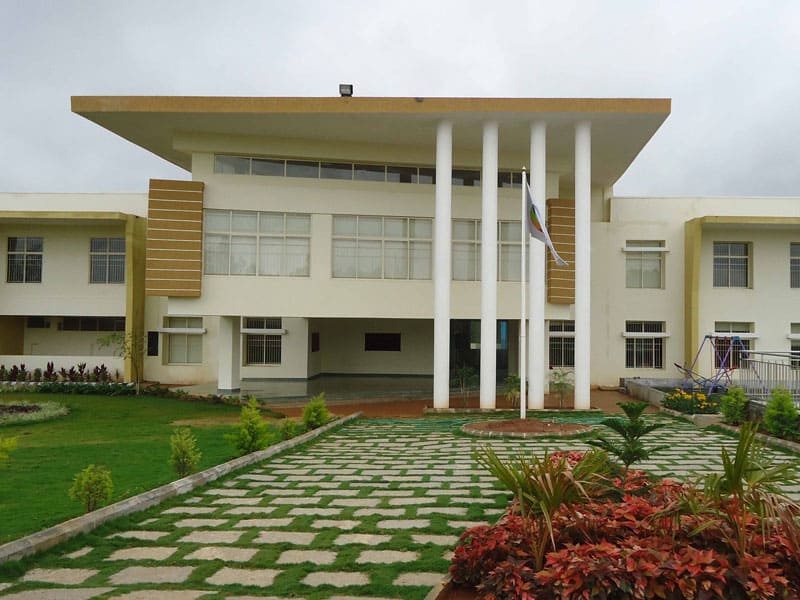
 Bannerghatta Campus
Bannerghatta Campus